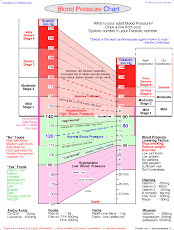Electrolytes are chemicals such as salts and minerals needed for various functions in the body.
Dehydration is a state of imbalance and it is loss of water and important blood salts like potassium (K+) and sodium (Na+).
Over hydration is also called water excess or water intoxication, is a condition in which the body contains too much water.
Two major imbalances in electrolytes are hyponatremia and hypernatremia
Hyponatremia or Low blood sodium. -- what is it?
Hyponatremia means a low concentration of sodium in the blood. When it occurs in triathletes, it usually happens during long or ultra-distance races in the heat but may occur anytime. It is estimated that approximately 30% of the finishers of the Hawaii Ironman are both hyponatremic and dehydrated. The longer the race, the greater the risk of hyponatremia.
What causes it?
The exact mechanisms are not fully understood. The simplest answer is that lost sweat (salt and water) is replaced by ingested water (no salt). This dilutes the sodium in the bloodstream, and hyponatremia results. Longer races carry a greater risk of hyponatremia because of the total amount of sweat lost. During exercise in the heat, more salt is lost in sweat per hour than is usually replaced by food and fluids, including sports drinks. Your body can tolerate a degree of imbalance for a short period of time, but it may decompensate if this continues for too long.
Sweat contains between 2.25 - 3.4 grams of salt per liter, and the rate of perspiration in a long, hot race can easily average 1 liter per hour. So, for a 12 hour race, one could lose approximately 27 to 41 grams of salt. If the athlete replaces only the lost water and has minimal salt intake, hyponatremia can result.
Treatment: eat salt.by SportsMed Web
Why are athletes susceptible to fluid and electrolye imbalances? Exercise causes sweating and the rapid loss of fluids. The simple answer is to drink plenty of fluids to avoid dehydration and to include salt and sugar in the drinks to avoid hyponatremia. The following web site contains a more detailed explanations in an article: Advanced Sports Nutrition by Dan Benardot, PhD, RD, FACSM Sports Nutrition
What causes hypernatremia or high blood sodium?
A short burst of intensive exercise (100-m swim lasting one minute and resulting in a 12-fold rise in the level of blood lactate) resulted in frank hypernatremia (serum sodium level, greater than 150 mEq/L) in 30% to 40% of well-trained athletes. In contrast, less intensive exercise (800-m swim lasting ten minutes and resulting in a sevenfold rise in the level of blood lactate) failed to cause a rise in serum sodium level despite comparable elevations in hematocrit reading and serum protein levels. Hypernatremia induced by intensive exercise cannot be explained by losses in body fluid or solute ingestion, but is probably a consequence of a shift of hypotonic fluid from the extracellular to the intracellular compartment. Thus, the mechanism of exercise-induced hypernatremia may be unique, as compared with other clinically recognized forms of hypernatremia. P. Felig, C. Johnson, M. Levitt, J. Cunningham, F. Keefe and B. Boglioli
That there will be a certain number of individuals that will need medical intervention due to hypernatremia or hyponatremia during or after a race was the conclusion a study by these people:Allenpress:Alexander Kratz, MD, PhD, MPH; Arthur J. Siegel, MD; Joseph G. Verbalis, MD; Marvin M. Adner. The reasons for their distress are not fully understood. It is presumed that the individuals that have the problems are the weekend warriors; not the trained athletes. In other words a very important preventative measure is to train. A doctor once explained to me that a body that was accustomed to fluxuations in electrolytes was more apt to suffer less severe consequences from the fluxuations.
A nutritionally sound individual who has adequately trained and that drinks plenty of fluids in the form of water and includes the occasional sports drink, should not have any problems with electrolyte imbalance. I might also be prudent to avoid running in 100 degree weather and to dress properly for conditions. Many people can have health issues that they may or may not be aware of so it is important that everyone listen to their body.
Additional links of interest:
by Lane Parks, MS, ATC
Dietary Report on body requirements for water and electrolytes.
Guidelines
Lab values


No comments:
Post a Comment